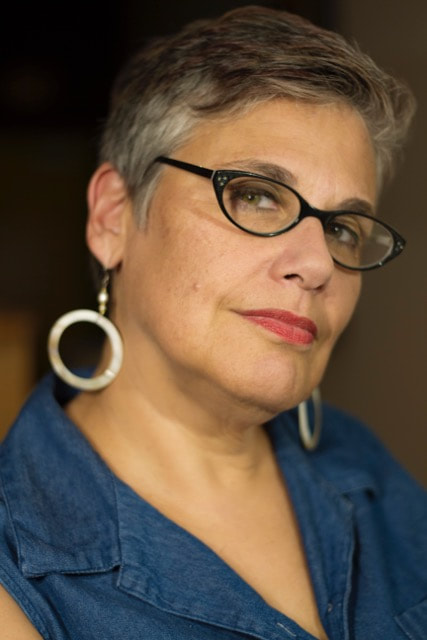ASSAY: A JOURNAL OF NONFICTION STUDIES
6.2
6.2
|
When Mike Steinberg died in December, the news rippled through my Facebook feed, my text messages, my emails. This cannot, I said, be true. His eyesight was poor, getting worse, but how does that kill a man? When Mike died, I was under the time crunch of my end-of-semester grading, and I wanted so much to write about how his mentorship made me a writer, but grades were due, and everything else that mattered had to wait. I believe Mike would have appreciated the dilemma. More to the point, though, I couldn’t write about him until I could find a reprieve from being stunned by Mike’s death. Also a dilemma Mike would have appreciated. What I want to tell you is that Mike Steinberg’s advocacy for my ability and intent made me a writer, and if you’re a nonfiction writer, he probably did the same for you.
When I was in graduate school, I attended the Writers in Paradise conference in St. Petersburg, Florida. I was new to writers’ conferences, halfway through my MFA program, and wasn’t sure I could actually write literary work. Maybe, I figured, what I was doing in a writing program was a form of escape, an experimental space between ending a two-decade career behind the scenes in television and whatever would come next. But Mike changed that. From my desk now, fifteen years after that workshop, I see him sitting in a chair at the front corner of a classroom, telling us around that workshop table that as memoirists, we are responsible for getting the facts “air-tight” (and these are air-tight, because as I write I am referring to the journal I kept at the conference.) My notes from his workshop that January in 2005, say, in part, “my story is still finding its boundaries. Dig deeper and find the heart.” And there was the vote of confidence I needed, beyond those of my MFA faculty, whose voices and workshop notes were too familiar. “Good to tell a good writer this because they can do it, they have the tools.” As I read these notes now, I remember feeling anointed. I had the tools. He said so, and although I’d only known him a few days at that point, I trusted him. I see that in the margins, I reminded myself to, “SEND HIM A THANK YOU NOTE.” I’m quite sure I did that, because I am a sender of thank-you notes, but as I write this essay, I realize that I didn’t thank him in the acknowledgements page in what became my first book, a memoir called “Invisible Sisters.” I was trying so hard to find my way into that book in January of 2005. This is the book for which my workshop notes say, “I am still here, that’s the crux of the story, everything comes back to that.” Mike had the grace not to point out that his name isn’t in that book, but here at my desk, I’m more than embarrassed. I’m horrified. His name is in my second book. “Braving the Fire” is a guide to writing nonfiction about grief and loss. This is a topic with which I am intimately familiar, but that doesn’t make the death of this friend and mentor easier. In that book, I wanted to interview writers I admired about their process of writing memoir about loss, and of course I turned to Mike. His 2003 memoir, “Still Pitching,” is on one level about his love for baseball, and on another, his identity as a Jew and a teenager wanting to play the game. In his answers to my emailed interview about writing that book, he told me that, “We struggle with grief and loss in almost every aspect of our lives, so it would seem to me that the reader would want to … enter anyone’s narrative [and see] how that persona got through it.” He added, “One way they made something out of it is called a book.” So many writers I admire and never thought I would meet, never mind share a meal and become colleagues, remember, as I do, the enthusiastic, smart, welcoming dinners Mike and Carole organized at NonfictioNow and at the gargantuan obstacle course that is AWP. Often, I attended those conferences because of Mike; I still teach from a paper I wrote for NonfictioNow in Flagstaff. My third book was published in 2019, and in writing that book, I believed I was committing a cardinal sin for a nonfiction writer. That book is a novel. Draft after draft (after draft) was a struggle, and I couldn’t understand why doing this was so very hard. After all, I’d written a memoir in which my two younger sisters die, our father succumbs to mental illness, and I confront grief in less than admirable ways. How hard could a novel be? At an AWP – was it in Tampa? Washington, DC? - I joked to Mike that writing fiction made me feel as if I were cheating on my craft. I was a published nonfiction writer, and here I was two-timing on my work. Mike told me differently. I was writing, he said. That was what mattered. Everything I write comes in part from the confidence Mike helped build in me. I see him now in that classroom at Eckerd College, at a jovial dinner table at an Iowa City restaurant, with Carole at any number of busy Marriott hotels. Fifteen years after that first conference, fourteen years after earning my MFA, eleven years after my first book was published, I’m a college professor. I teach creative writing to undergraduates and to adults at writing conferences not unlike that first one I attended in Florida. My students are often daunted by the hard work of writing well, by interrogating what they felt, saw, heard in the original moment about which they’re writing. What I try to tell them is what Mike told me. A literary writer tries to make sense of the human condition. In my best moments, I can try to be someone else’s Mike Steinberg. In that small way, he is still here. I believe he would have appreciated that. |
|
Jessica Handler is the author of the novel The Magnetic Girl, winner of the 2020 Southern Book Prize and a nominee for the Townsend Prize for Fiction. The novel is one of the 2019 “Books All Georgians Should Read,” an Indie Next pick, Wall Street Journal Spring 2019 pick, Bitter Southerner Summer 2019 pick, and a SIBA Okra Pick. Her memoir, Invisible Sisters, was also named one of the “Books All Georgians Should Read,” and her craft guide Braving the Fire: A Guide to Writing About Grief and Loss was praised by Vanity Fair magazine. Her writing has appeared on NPR, in Tin House, Drunken Boat, The Bitter Southerner, Electric Literature, Brevity, Creative Nonfiction, Newsweek, The Washington Post. A founding member of the board of the Decatur Writers Studio in Decatur, Georgia, she teaches creative writing and directs the Minor in Writing at Oglethorpe University in Atlanta, and lectures internationally on writing.
|

